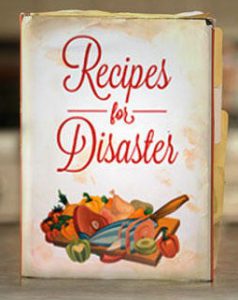Food Safety is Everyone’s Responsibility.

Consumers need to be mindful of the importance of handling food properly to reduce risk of foodborne illness. Practicing the four basic steps to food safety – clean, separate, cook, and chill – is the foundation to help protect you and your family from illness.
However, sometimes it is the little food safety mistakes we do in the kitchen that can turn into serious health problems.
Be Alert to These Common Food Safety Mistakes
- Not washing your hands properly and frequently throughout the food preparation process. Make sure to wash hands frequently with warm soapy water for at least 20 seconds.
- Undercooking meat, poultry, seafood, and eggs. Use a reliable food thermometer to check the doneness of food before eating.
- Not maintaining proper refrigerator temperature of 40 degrees F. or less. Keep an appliance thermometer in the refrigerator to monitor temperature.
- Not cleaning your refrigerator. Make sure to clean up spills immediately with warm soapy water, throw out food that is no longer safe to eat, and wash the inside of the refrigerator weekly.
- Thawing OR marinating food on the counter. The safest method to thaw or marinate food is in the refrigerator. Only reuse the marinade if it has been heated to a full boil before serving.
- Letting perishable food stay at room temperature more than two hours. Room temperature is considered the temperature danger zone when disease-causing organisms multiply rapidly and can cause illness. The temperature danger zone is between 40 and 140 degrees F.
- Letting cooked food cool on the counter before refrigerating. Always promptly refrigerate perishable food within two hours.
- Washing meat, poultry, or eggs before cooking. This can help spread disease-causing microorganisms onto counters, utensils, sinks, and other surfaces.
- Storing raw meat, poultry, and seafood on the top shelf in the refrigerator. Raw juices from these foods can get on other foods and cause cross-contamination.
- Tasting food to determine if it is safe to eat. NEVER taste food to decide if it is safe.
When in Doubt, Throw it Out!
 0
0

